Page 20 • (844 results in 0.028 seconds)
-
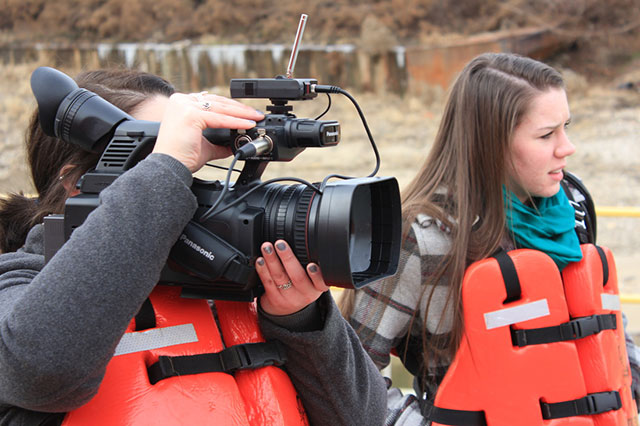
PLU’s MediaLab dived into the global water crisis with its latest documentary “Tapped Out,” which premiered Oct. 26 at the Seattle Central Public Library. MediaLab filmmakers wade into global water crisis By Amanda Brasgalla ’15 Four PLU students who spent more than a year researching…
elsewhere. Specifically, the research team traveled across North America – from the Puget Sound region to the Rocky Mountains, Texas, the Gulf of Mexico, the East Coast and the Great Lakes – to study areas adversely affected by drought, population growth and questionable management practices. See Tapped Out “Tapped Out” premieres at 2 p.m. Saturday, Oct. 26 at the Seattle Central Public Library, 1000 Fourth Ave. Find out more about Tapped Out. Kortney Scroger ‘14, a PLU senior communication major who
-

TACOMA, Wash. (March 26, 2015)—Megan Leibold ’13 and Anikka Abbott ’15 have more in common than Pacific Lutheran University: They both have won the title of Miss Pierce County. And not only that , but they also won back-to-back: Leibold won in February 2014 and…
to the forefront,” Abbott said. She also works and volunteers for YWCA Pierce County, where she helps and advocates for victims of domestic violence. Leibold and Abbott competed together in the Miss Pierce County 2014 pageant and have remained friends since. “The Miss America program is kind of like a sorority; we meet all of these women and become friends,” Abbott said. Abbott will compete in the Miss Washington pageant in July; if she wins, she’ll advance to the Miss America competition. “I
-
2010 PLU Athletic Hall of Fame THE 2010 PACIFIC LUTHERAN ATHLETIC HALL OF FAME CLASS, consisting of three national championship teams and three outstanding athletes who wore the black and gold, will be the 21st in the hall’s history. The list of inductees includes the…
played during his PLU football career, accruing 22 sacks, with 13 coming in his sophomore season. Thiel was a two-time Mt. Rainier League All-Star (1992, ’93) and a member of the Columbia Football Association championship teams of 1992, ’93 and ’94. He earned honorable mention All-America honors in the 1993 season, and with six tackles, two quarterback sacks, and a fumble recovery, he was named the Defensive MVP in PLU’s 50-20 NAIA championship game win over Westminster. He was off to a similarly
-
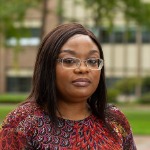
Assistant Professor of French & Francophone Studies and Global Studies | French & Francophone Studies | lekani@plu.edu | 253-535-8340 | Dr.
cities in Africa, Europe, and America. She studied and taught at numerous institutions in the US such as the University of Oregon, Louisiana State University, Dartmouth College, and Hobart and William Smith Colleges. Dr. Ekani’s “secret de polichinelle” is to become a novelist. So, she spends most of her spare time writing, rewriting, and editing manuscripts. In addition, she likes to travel, watch stand-up comedies, meditate, and talk to her family and friends. She applauds the freedom that comes
-

Assistant Professor of French & Francophone Studies and Global Studies | Global & Cultural Studies | lekani@plu.edu | 253-535-8340 | Dr.
cities in Africa, Europe, and America. She studied and taught at numerous institutions in the US such as the University of Oregon, Louisiana State University, Dartmouth College, and Hobart and William Smith Colleges. Dr. Ekani’s “secret de polichinelle” is to become a novelist. So, she spends most of her spare time writing, rewriting, and editing manuscripts. In addition, she likes to travel, watch stand-up comedies, meditate, and talk to her family and friends. She applauds the freedom that comes
-
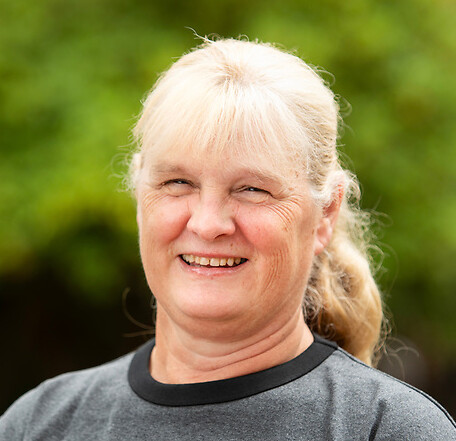
Clinic Coordinator | Health Services | splintdk@plu.edu | 253-535-7337 | I joined PLU and Health Services in 2003. I like to camp, travel with my husband of 28+ years, read, work in my yard and garden, walk my dog Lucy, and exercise. I love spending time with my daughter (who is in the Education department at Central University), my son (who graduated from PLU with a Psychology major), my new daughter-in-law (who graduated from Western University, also with a Psychology major), as well as my extended family – who all live in this area. Professional 2003 to present: PLU Student Health Center Family Practice Office Manager / Medical Assistant for 20 years Ophthalmology Assistant for 5 years .
Doreen Splinter, MA Clinic Coordinator she/her Phone: 253-535-7337 Email: splintdk@plu.edu Office Location: Health Center Professional Biography Personal Education Certified Medical Assistant, Pierce County Community College, 1979 Responsibilities Administrative support for Health Services. Work with students as a navigator to establish health insurance under their own plan. Professional Memberships/Organizations Diabetic Association of America Biography I joined PLU and Health Services in 2003
-
Lutheran Studies Conference
1960s, 2018) and Jewish struggles for inclusion in U.S. culture (The Quest for Inclusion: Jews and Liberalism in Modern America, 2000). His forthcoming book addresses Antisemitism in U.S. culture.Questions?Contact Conference Organizer, Dr. Samuel Torvend at torvensa@plu.edu or Director of Congregational Engagement, Kendall Jeske at jeskekj@plu.edu.Conference ScheduleScheduleKeynote SpeakerSpeaker Bio The conference is free and open to the public and is made possible by the generosity of the
Dr. Marit Trelstad, University Chair in Lutheran Studies -
Care “PLU grads are really needed in tough areas. People out here in the world need people who care.” Eric Pfaff ’09 opened PLU’s first bike co-op two years ago as a way for students to quickly and sustainably run errands around campus. Pfaff graduated…
December 1, 2009 Care “PLU grads are really needed in tough areas. People out here in the world need people who care.”Eric Pfaff ’09 opened PLU’s first bike co-op two years ago as a way for students to quickly and sustainably run errands around campus. Pfaff graduated from PLU, signed up for the intensive non-profit training provided by Teach for America and is now teaching fifth grade in a low-income school in Tulsa, Okla. No doubt he’s encouraging his students there to hop on a bike and ride
-
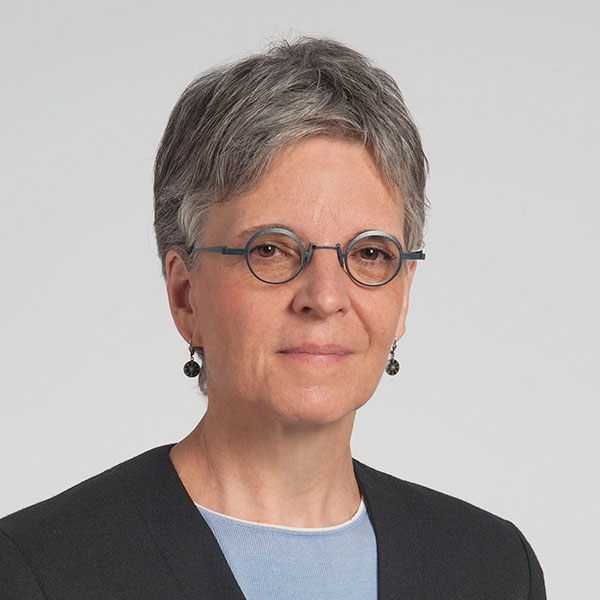
PLU alumnus Scott Foss ’91 serves as a top paleontologist for the Department of the Interior.
1995, has authored more than 115 scientific publications, and is co-editor of two major textbooks in the field of pulmonary pathology. Dr. Farver received the first annual Distinguished Achievement Award in Graduate Medical Education from the National Association of Pathology Chairs, the Scholarship in Teaching Award from Case Western Reserve University School of Medicine, the Cleveland Clinic’s Leadership Development Award and has been included in the “Best Doctors in America” list since 2009.
-
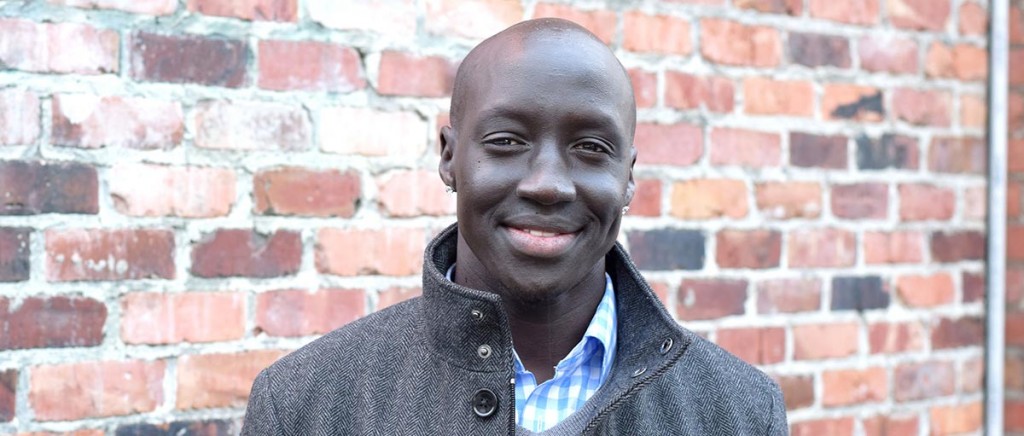
TACOMA, WASH. (Dec. 22, 2016)- It’s been 25 years since David Akuien ’10 was separated from his mother at age 5, 16 years since he came to the United States as an orphan. An estimated two million people died as a result of war, famine…
barefoot onto the plane. Now, every morning when I put on my watch I just think ‘what is this?’. I have a huge cubicle at work with my name on it. When I was boarding the plane to come here, I was so scared. I didn’t know what America looked like, had never been here. Fast forward to now and I can’t make sense of it. David tries to maintain a positive outlook, and is quick to acknowledge and give thanks for what he has, where he is and what he has achieved. Even with his success, his longing for his
Do you have any feedback for us? If so, feel free to use our Feedback Form.


